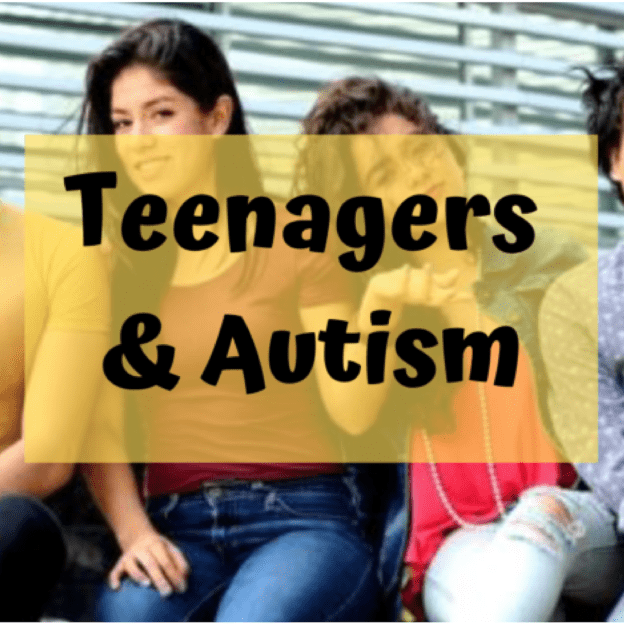Does My Teenager Have Autism? Signs of Autism in Teenage Boys and Girls
In our experience, most children with Autism Spectrum Disorder (ASD) or autism are diagnosed at a young age particularly when they have very obvious difficulties. However, many children go under the radar because their difficulties might appear subtle or not very problematic in early childhood. These difficulties or signs of autism are often highlighted more in their teenage years when relationships deepen, change and become more complex.
In our last blog post, Signs of Autism in Young Children we discussed the nature of ASD and how you might recognize the signs of ASD in very young children. We talked about how a child with ASD will show persistent difficulties in these common two areas:
- Social communication and social interaction, and;
- Restricted and repetitive patterns of behaviours, activities or interests (this includes sensory behaviour)
We also highlighted how these difficulties must be present since early childhood.
As with younger children , when diagnosing ASD in older children we will see difficulties with Social communication and social interaction, and; Restricted and repetitive patterns of behaviours, however how these difficulties present in older children is likely to be different.
What Might I Notice In My Teenager?
Thinking about the core difficulties of ASD, try to think back about their behaviour as a child. For those children who aren’t diagnosed until later on in life, common signs in childhood include:
- Being later to talk than expected, or repeating back what others say to them (echolalia).
- Having more advanced skills. For example, being able to read or do maths sums from a very early age, even before formal schooling began.
- Struggle with transitions. This may have been from one room of the house to the next, away from toys, going out into the community and leaving or entering shops.
- Sensory difficulties– startled by noises, didn’t like certain textures or feelings, such as haircuts, tooth brushing or nail cutting. Many children struggle with this but quickly get used to the routine. Did your child find this exceptionally hard?
- Was their play different or unusual? For example did they use pretend play, or did they prefer to stack objects and organise them?
Social Communication and Interaction
- Talk a lot about a favourite topic and may not understand when to stop or gauge if the other person is interested.
- Find it hard to understand everyday language and expressions.
- You might notice that your child takes things literally, such as understanding expressions like, “Take it with a pinch of salt”, “Be there or be square”, or “It’s raining cats and dogs”.
- The might find it hard to take turns in conversations.
- A teenager with autism might speak in an unusual way, sometimes with an accent or monotone voice, and language use may be very formal and vocabulary may be advanced.
Non-Verbal Communication
- Difficulties in noticing and reading non-verbal cues. For example, understanding sarcasm based on tone of voice, deciding if someone is interested based on facial expression and body language, or noticing if someone is angry or cross based on tone of voice.
- They might not use eye contact appropriately. This could be less eye contact, eye contact when it is not appropriate or using too much eye contact and not realising the other person feels uncomfortable.
- A teenager with autism might have difficulty recognising and showing emotion, or not be able to read other people’s facial expressions. For example, misinterpreting a smile as an expression of interest, or not recognising that when someone is interested.
Social Skill and Social Behaviour
- They may appear to be quite “bossy” and need other children to play by their rules.
- Have trouble understanding the social rules of friendship. For example, turn taking, initiating and maintaining contact with friends, understanding that friends have other friends.
- Not appreciating their peers don’t share all the same interests as they do.
- They may prefer to spend time on their own, rather than with friends or have few or no ‘real’ friends.
- Difficulties interacting with and relating to children their own age. They might prefer to play with younger children (who are easier to boss about) or adults (who often entertain extended conversation about specific interests).
- A teenager with autism might have difficulty adjusting their behaviour in different social situations. They might invade personal space and get too close to people.
Repetitive Behaviour and Restricted Interests
- Have unusual interests or obsessions. For example, collecting things, obsessive interest in characters from TV shows.
- Have compulsive behaviour. For example, they might line things up or have to close all the doors in the house, or flick a light switch on and off a number of times before leaving the room.
- They might like to follow routines and be easily upset by change. For example, they might like to sit in the same seat for every meal or have a special order for getting ready in the morning.
Other Signs You Might Notice:
- Have high levels of anxiety, low mood or depression.
- Struggle with changes in routine and transitions. May begin to refuse to go to school.
- Sleep disturbances.
- Challenging behaviour in home, school or in the community.
- Have poor planning and organisational skills.
- Have poor self-care and independent skills.
- Might not pay much attention to social conventions such as personal appearance, or hygiene.
Make sure to look out for our upcoming related blog post:

